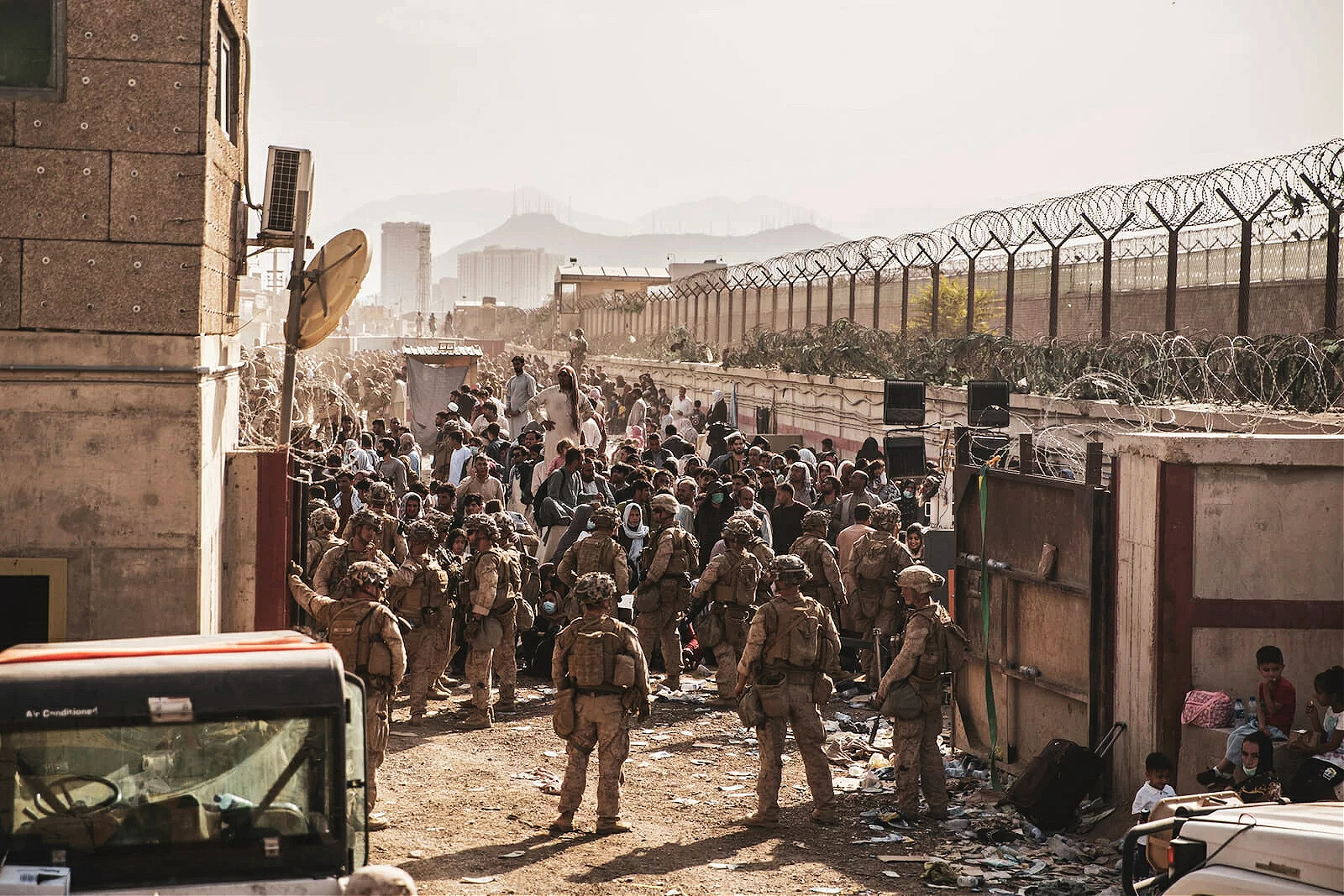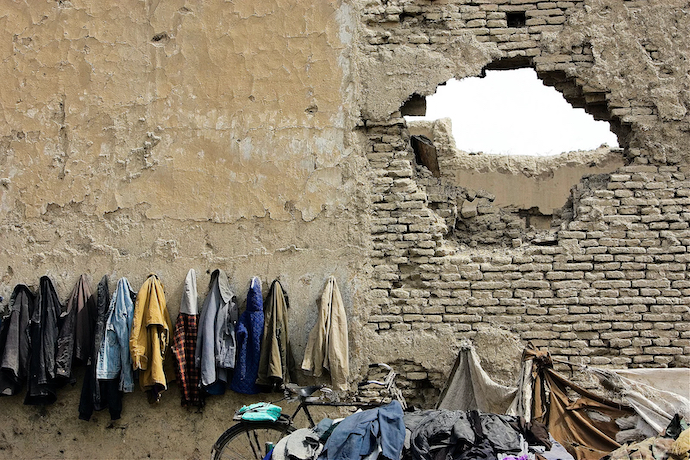
America’s Afghan Withdrawal is Marked by Agony and Consequences
Decades of warfare, hardship, and displacement have shaped Afghanistan’s war-torn past. There have been substantial repercussions for those impacted by the aftermath of the U.S. withdrawal from the country in 2021. As someone who has a personal connection with a friend from Afghanistan, I have witnessed firsthand the devastating effects of the U.S. withdrawal on his life and the lives of many others.
In the 1980s, Taj Muhammad’s family, like many others, were refugees of the country’s civil war and sought refuge in Pakistan. They faced numerous challenges to settling in a foreign land, but despite the hardships, they were able to establish a new life there. However, after the U.S. invasion in 2001 to eliminate Osama bin Laden’s Al-Qaeda and the establishment of the American-backed Karzai government, Taj’s family decided to return to Afghanistan. Taj secured a job with an NGO in Kabul and was living a relatively comfortable life, despite the ongoing uncertainty and instability in the country.
However, Taj’s hopes were shattered when the United States withdrew from Afghanistan in 2021. The collapse of the Ashraf Ghani government plunged the country into chaos. Taj had to flee to Pakistan for a second time, leaving the life he had built behind. Taj, who is now in his late 40s, found himself living in extreme poverty in Pakistan, along with many other Afghan refugees whose lives were upended by the sudden turn of events.
For Taj, and many others like him, the U.S. withdrawal was a devastating blow. He holds the United States responsible for the agony and miseries that he and his fellow Afghans have faced. The American involvement in Afghanistan, which spanned over two decades, left a trail of destruction and suffering, pushing families into poverty and causing immense hardship for ordinary Afghans.

One of the glaring consequences of the U.S. withdrawal is the deteriorating situation for Afghan women and girls. Over the course of 20 years, progress was made in terms of gender equality and women’s rights, with increased access to education and opportunities for women. However, under the rule of the Taliban, there are growing concerns about the rollback of these hard-fought gains.
Another consequence of the U.S. withdrawal is the dire humanitarian situation. The country is facing a severe economic crisis, with widespread poverty, hunger, and displacement. The withdrawal has led to a breakdown of basic services; including healthcare, education, and infrastructure, further exacerbating the suffering of ordinary Afghans.
The U.S. withdrawal has also fueled political instability in the region. The swift collapse of the Ghani government and the rapid takeover by the Taliban has created a power vacuum and raised concerns about the potential for renewed civil war. The lack of a stable government has also hampered efforts to address the humanitarian crisis and provide assistance to those in need. Taj, who had hoped for a stable and peaceful future in Afghanistan, now sees his country embroiled in uncertainty and turmoil once again.
As Taj and his family struggle to survive in Pakistan, they are not alone in their plight. The aftermath of the U.S. withdrawal has had far-reaching consequences for the country and its people. The impact of the U.S. withdrawal goes beyond the immediate humanitarian crisis and instability. It has also raised questions about the credibility and reliability of the United States as an ally in the region. The abrupt nature of the withdrawal has left many Afghans feeling abandoned and disillusioned.
Moreover, the U.S. withdrawal has had regional and global implications. Neighboring countries, such as Pakistan, have had to bear the burden of hosting a large number of Afghan refugees, putting additional strain on their resources and infrastructure. The potential for increased regional instability, including the spread of extremism and terrorism, is a cause for concern for the international community. Taj is a living example of how the consequences of the U.S. withdrawal are not limited to Afghanistan but have far-reaching effects on the entire region.

The aftermath of the U.S. withdrawal has also raised questions about the long-term implications for U.S. foreign policy and credibility. The sudden collapse of the Afghan government, and the swift takeover by the Taliban, have led to criticism of the U.S. approach to nation-building and democracy-building efforts in Afghanistan. The billions of dollars spent and the sacrifices made by U.S. troops over the years are now being called into question, as the situation in Afghanistan has rapidly deteriorated.
However, there is another side to the story. Afghanistan’s indigenous culture, geography, and tribal values have always allowed the Taliban to conveniently intermingle in society and take refuge in rural hideouts. The amount of international aid funneled to the country since 2001 to reconstruct and rebuild an inclusive Afghan society was mismanaged and misused by corrupt Afghan officials, while the dynamics of rural Afghanistan did not allow these efforts to succeed. The resurgence of the Taliban after the U.S. withdrawal has again pushed Afghanistan back into the dark ages of religious extremism. The Taliban have quickly reversed the progress made over two decades with little resistance from Afghan society.
In light of the aftermath of the U.S. withdrawal, or retreat if you will, there are important lessons to be learned.
The need for a comprehensive and inclusive approach to nation-building in conflict-affected countries cannot be overstated. A sustainable and stable Afghanistan requires addressing underlying issues such as governance, corruption, security, development, and human rights in an integrated manner, with the meaningful participation of all stakeholders, including the Afghan people.
The importance of long-term commitments and responsible disengagement cannot be emphasized enough. Abrupt withdrawals without proper planning and coordination can have severe consequences, as witnessed in the case of Afghanistan. Any decision to withdraw from a conflict-affected country should be carefully considered, taking into account the potential impact on the country, its people, and the region as a whole.
The need for continued support for humanitarian assistance and the protection of vulnerable populations, including refugees, cannot be overstated. The humanitarian crisis in Afghanistan has worsened following the U.S. withdrawal, and efforts must be made to provide urgent assistance to those in need and ensure the protection of human rights, especially for women, children, and marginalized communities. The role of indigenous civil society is crucial here. Unless there emerges a powerful opposition to the brutal policies of the Taliban and until the local population breaks the barriers of their fear to confront religious extremism, outside assistance will be meaningless. Despite all the blame game, Afghans need a government that works for them and not against them.
The aftermath of the U.S. withdrawal has had significant consequences for the country and its people, as well as regional and global implications. Taj’s story is just one example of the many lives that have been upended by the sudden turn of events. The U.S. withdrawal has resulted in increased instability, humanitarian crises, political uncertainties, and questions about U.S. foreign policy and credibility.
It is crucial to learn from this experience and strive for comprehensive, inclusive, and responsible approaches to nation-building and conflict resolution in the future. Efforts must also be made to provide continued humanitarian assistance and protection to vulnerable populations, including refugees who are bearing the brunt of the aftermath of the U.S. withdrawal from Afghanistan.

